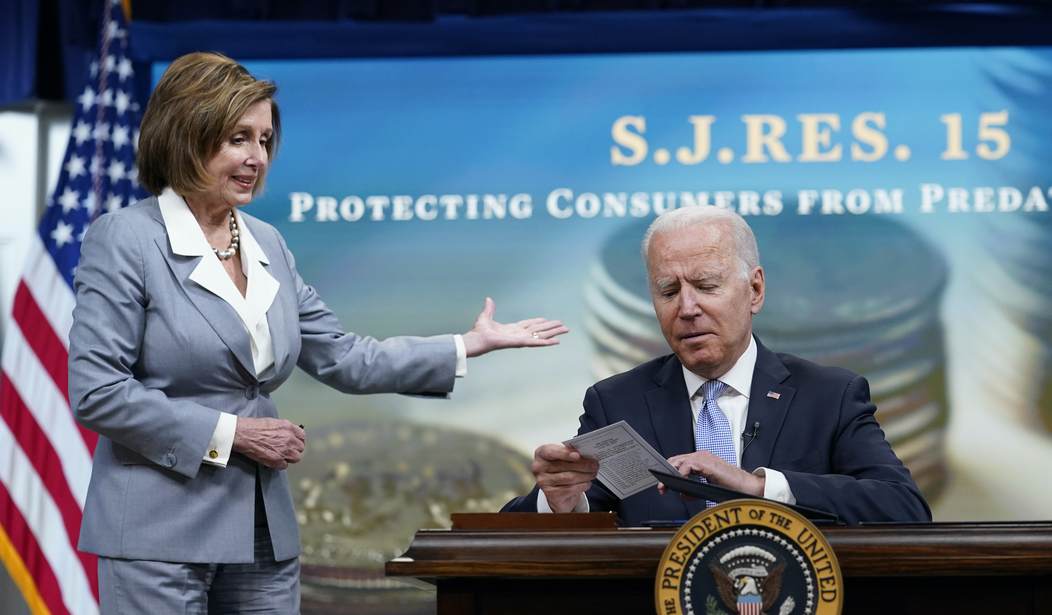Is the American economy ready for some hair of the dog? Joe Biden and Democrats in Washington find themselves in the middle of a confidence-crisis cascade that started with Biden’s botched withdrawal from Afghanistan and abandonment of Americans in August. The cascade has picked up speed as other failures came into play, such as pandemic mismanagement and mandate exhaustion, as well as a supply-chain crisis that the administration ignored until it became undeniable.
But by far the biggest driving force for Biden’s collapse has been inflation. Its impact has hit broadly, and keeps getting worse, especially in places where Biden’s remaining political strength should be found. Rent inflation has hit urban areas hard, and millions of people may find themselves on the streets soon and looking for shelter, the Washington Post reports this morning:
Rental prices across the country have been rising for months, but lately the increases have been sharper and more widespread, forcing millions of Americans to reassess their living situations.
Average rents rose 14 percent last year, to $1,877 a month, with cities like Austin, New York and Miami notching increases of as much as 40 percent, according to real estate firm Redfin. And Americans expect rents will continue to rise — by about 10 percent this year — according to a report released this month by the Federal Reserve Bank of New York. At the same time, many local rent freezes and eviction moratoriums have already expired.
“Rents really shot up in the second half of 2021,” said Daryl Fairweather, chief economist at Redfin. “The pandemic was kind of a pause on the economy and now that things are reopening, inflation is picking up, rents are going up and people are realizing they don’t have as much disposable income as they might have thought they had.”
Higher rent prices are also expected to be a key driver of inflation in coming months. Housing costs make up a third of the U.S. consumer price index, which is calculated based on the going rate of home rentals. But economists say there is a lag of 9 to 12 months before rising rents show up in inflation measures. As a result, even if inflation were to subside for all other components of the consumer price index, rising rents alone could keep inflation levels elevated through the year, said Frank Nothaft, chief economist at real estate data firm CoreLogic.
Rent and housing inflation became a significant component of the overall rise a few months ago. This isn’t new, but it’s going to become a real problem for the party that not just runs these cities but also relies on urban-core turnout to win state and federal elections. This will produce both direct and indirect impacts on Democrats’ performance in the midterms and likely in 2024 as well.
Direct impact: a mobile electorate will find it much more difficult to vote. It’s hardly impossible, but the act of moving usually disrupts voter registrations and preparations. The harder it becomes to vote due to relocation, the fewer voters will turn out, and these are the Democrats’ core voters. Indirect impact: Voters who feel forced out of their rental homes will resent the party whose leadership produced those conditions.
And there is little doubt that Democrats own the current inflation spike. Economists across the spectrum warned Biden, Nancy Pelosi, and Chuck Schumer that the massive stimulus in March would overheat the economy and stress supply chains. Former Clinton administration official Larry Summers predicted exactly what has unfolded in early February, warnings at which the White House openly scoffed. There are other structural reasons for this inflationary wave, including a decade of “quantitative easing” monetary expansion that began during the Obama/Biden administration, but the March stimulus bill provided the catalyst for the explosion of inflation last year and into this one.
With that in mind, what will Democrats do next to deal with the crisis they created? This is where the dog fur will fly, if progressive Democrats get their way:
A group of House Democrats running for reelection in competitive districts will today send a letter to President Biden urging him to move forward with the $555 billion in climate investments that have already passed the House as part of the Build Back Better Act, the mammoth bill that is Biden’s top legislative priority but has all but flamed out. …
“These provisions are necessary for our districts and what constituents are demanding,” Levin, who flipped his coastal district in 2018, told The Early. “Climate change doesn’t discriminate between red states and blue states and red and blue districts.”
Biden and Democratic leadership have insisted they’re still pushing for BBB.
But the agenda over the next few weeks doesn’t bode well for the $2 trillion stalled package in the short term: “The House and Senate return next week after the painful defeat earlier this month on another key item on [Biden’s] agenda — a voting rights bill — with a plate full of items Democrats plan to focus on. Not on the menu: Build Back Better,” our colleague Paul Kane writes.
In other words, Democrats still plan to keep spending money on outside-budget progressive priorities at a time when Congress should focus on reining in spending to ease the monetary-supply pressure. Not only that, but their focus remains on their climate-change hobby horse rather than supply-chain issues that contribute to the inflationary wave. Voters want stable buying power, a roof over their heads, and food on the grocery shelves a lot more than they worry about climate change at the moment. And yet Democrats insist on throwing money at everything except what voters actually care about.
If Democrats deliberately strategized to lose elections, I’m not certain whether they would do anything more or less than they’re doing at the moment.








